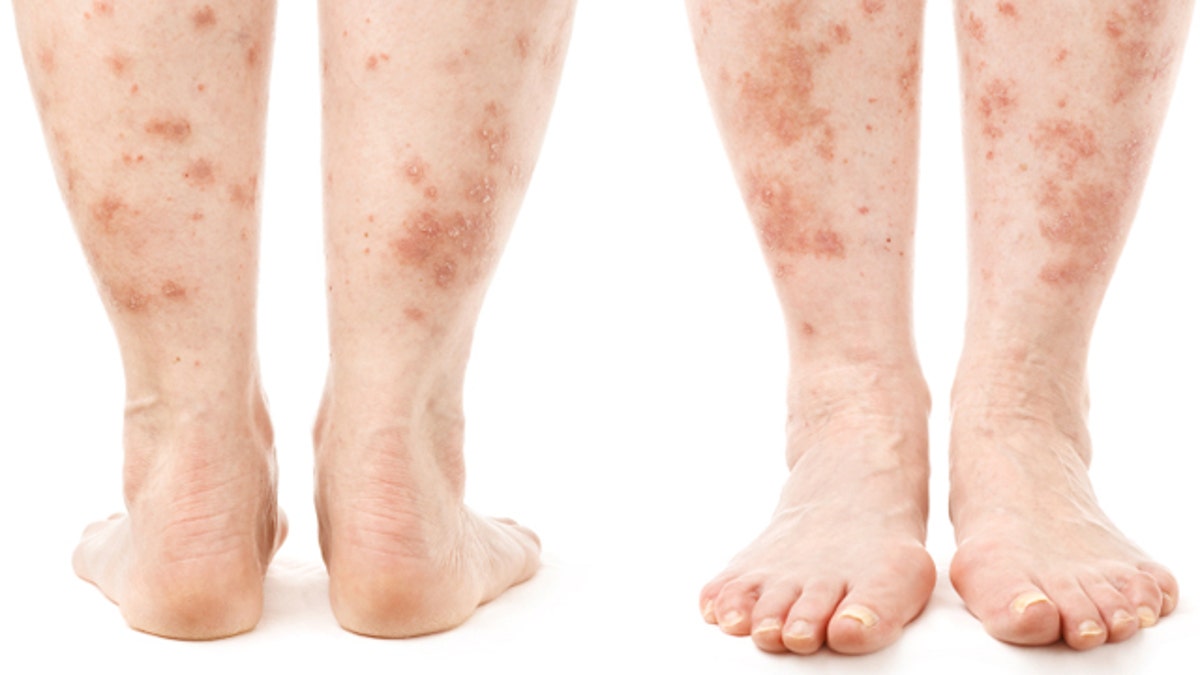
Researchers say they have identified a gene linked to the most common form of psoriasis, a chronic skin condition.
Rare mutations in the gene, called CARD14, when activated by an environmental trigger, can lead to plaque psoriasis, according to the researchers.
An overactive immune system has long been thought to cause psoriasis, but the researchers say the genetic pathway they've uncovered points to defects in the skin as the main culprit of the condition, and to immune cells as playing a role as well.
The research is published in two separate papers in the May 4 issue of The American Journal of Human Genetics.
"Individually, the rare mutations we have found likely confer a high risk for the disease, and we think they will be important in the search to find new, more effective treatments," said Anne Bowcock, professor of genetics at the Washington University School of Medicine, who co-authored both papers.
An estimated 7.5 million Americans have psoriasis, and plaque psoriasis accounts for 80 percent of all psoriasis cases. The condition is characterized by dry, raised, red patches covered with silvery scales that can be itchy and painful.
The research is early, and the study showed an association, not a cause-and-effect link between the mutations and the condition. Still, the discovery could lead to more effective, targeted therapies for plaque psoriasis and other forms of the disease, the researchers said.
Bowcock and her colleagues used DNA sequencing and uncovered the rare CARD14 mutations in two families — one of northern European descent, one from Taiwan — in which plaque psoriasis was prevalent.
But mutations in the gene do not occur only in families with a genetic predisposition.
The researchers also found a CARD14 mutation in a 3-year-old girl from Haiti with a severe case of pustular psoriasis, a rare form of psoriasis. Neither of the girls' parents had the mutations, which means that the mutation was not inherited, but had occurred spontaneously.
Psoriasis typically develops after an environmental trigger, which can include an infection, such as strep throat, or injury to the skin, including a cut or bug bite. Certain medications, smoking and heavy alcohol consumption also are triggers.
Now, the researchers said, they want to find out how common the altered pathway is in the different types of psoriasis, and in patients with psoriatic arthritis.
- 4 Common Skin Woes, and How to Fix Them
- Acne: What Causes It and How Can it Be Treated?
- Top 10 Mysterious Diseases
Copyright 2012 MyHealthNewsDaily, a TechMediaNetwork company. All rights reserved. This material may not be published, broadcast, rewritten or redistributed.
